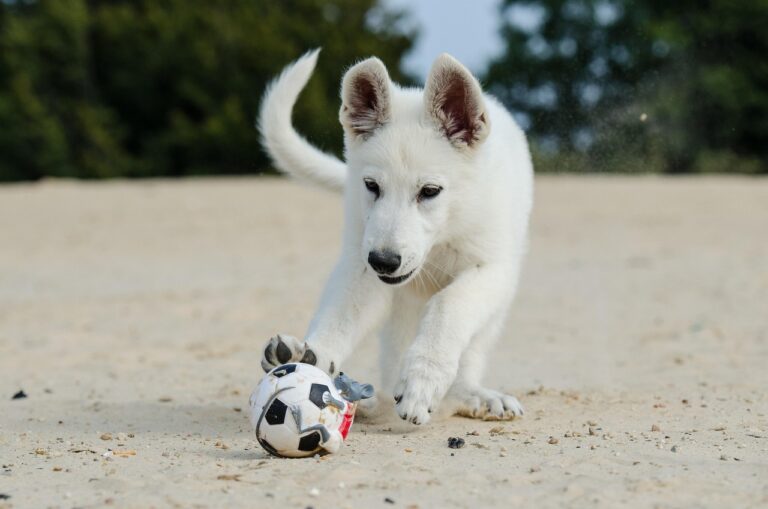13 Important Dog Health Facts Every Owner Needs to Know
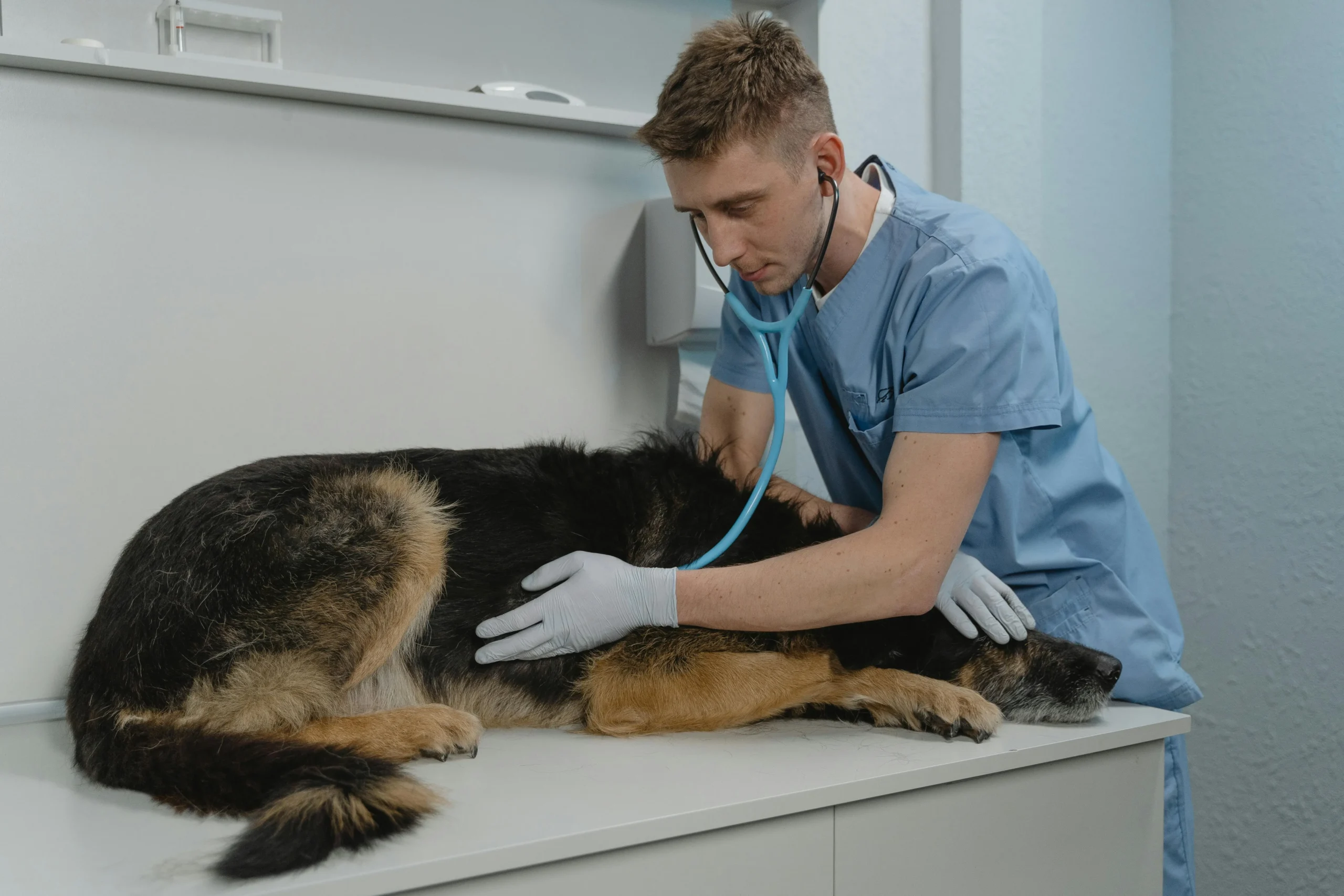
As a dog owner, your dog’s health and happiness are at the heart of everything you do. We all want our furry friends to live long, happy lives, but how do we ensure we’re giving them the best care possible?
Here are 13 important dog health facts that every dog owner should know, all presented in a fun and easy way to keep you engaged and informed.
1. Regular Vet Visits Are Key to a Healthy Dog
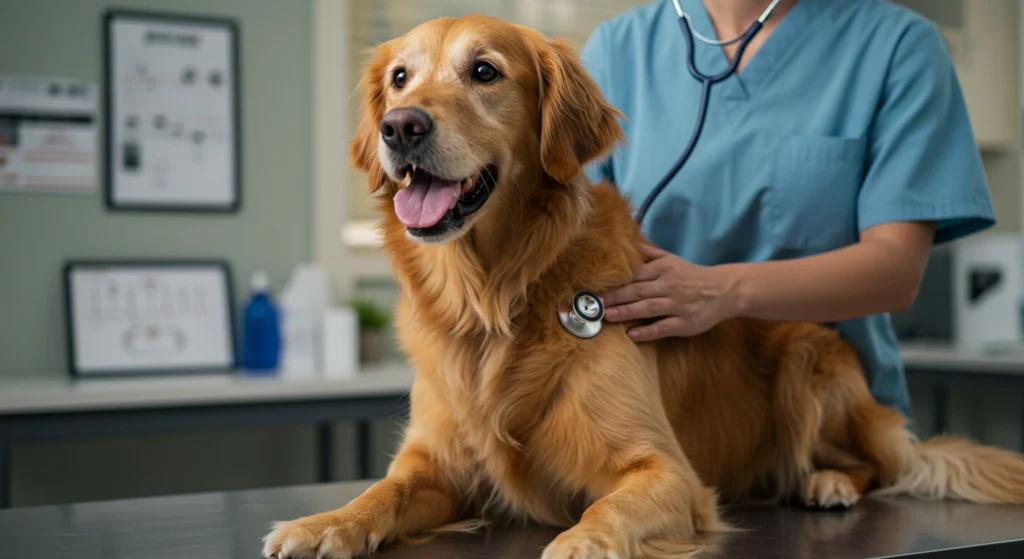
Just like humans, dogs need regular checkups with the vet to stay in good health. Vet visits can catch problems early and keep your dog protected from diseases. It’s generally recommended that dogs visit the vet at least once a year for an annual check-up. However, puppies, seniors, or dogs with health issues may need more frequent visits.
According to the American Veterinary Medical Association (AVMA), annual vet visits help in detecting health issues such as heart disease, joint problems, and infections before they become serious.
During these visits, the vet will check your dog’s weight, listen to their heart, look at their teeth, and may perform routine tests like blood work. If your dog is feeling unwell or showing signs of discomfort, don’t wait for the annual checkup take them in for a visit as soon as possible.
Regular vet visits also help in preventing health problems. Vaccinations, flea and tick treatments, and dental cleanings are often administered during these visits, ensuring your dog stays protected from common illnesses.
2. Proper Nutrition Is Essential
Feeding your dog the right food is crucial for their health. A balanced diet provides the right amount of energy and nutrients for growth, maintenance, and overall well-being. Dogs are omnivores, meaning they need a variety of proteins, fats, and carbohydrates.
The Association of American Feed Control Officials (AAFCO) recommends that dog food should contain a balance of proteins, fats, fiber, and water to keep your dog healthy.
Dog food comes in many varieties, including dry kibble, canned food, and raw diets. Always check the label to ensure the food meets your dog’s nutritional needs. You should also avoid feeding your dog human food, especially foods like grapes, onions, garlic, chocolate, and alcohol, which can be toxic to dogs.
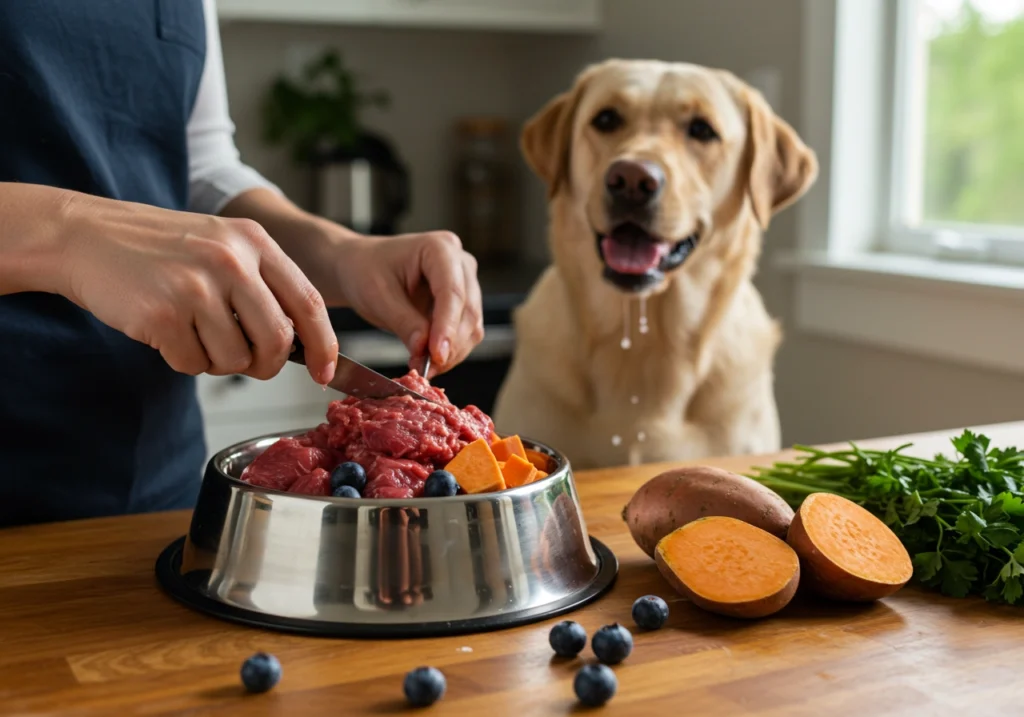
Your dog’s nutritional needs also change depending on their life stage. Puppies require more protein for growth, adult dogs need a balanced mix for energy, and senior dogs may need food that supports joint health and digestion.
A good diet supports your dog’s immune system, skin health, coat condition, and overall energy levels. Always consult with your vet to choose the best food for your dog’s breed, age, and activity level.
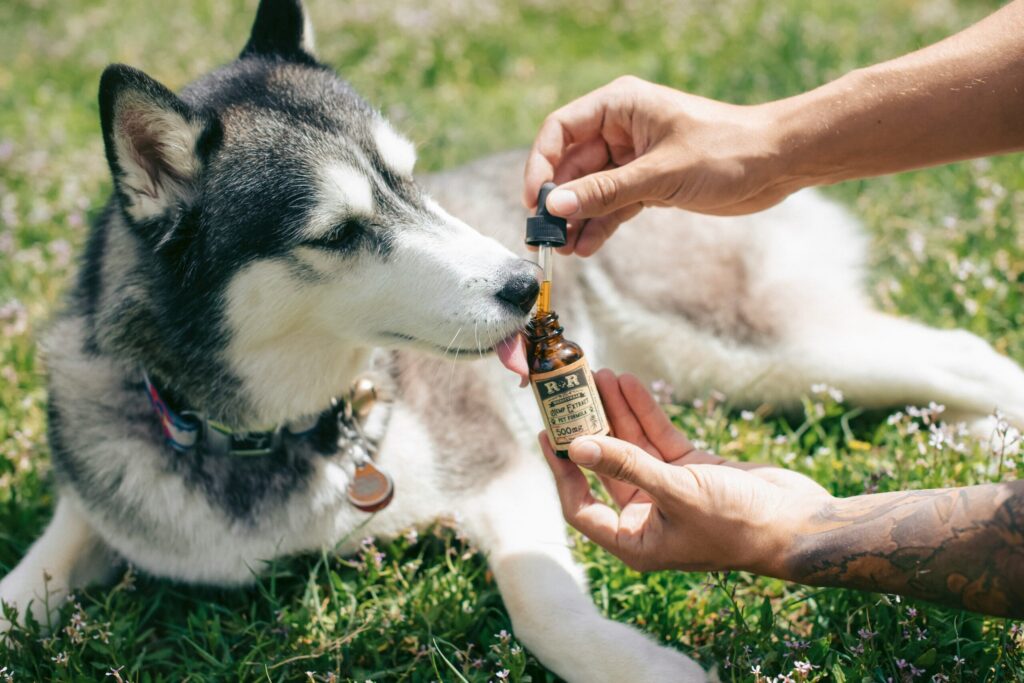
3. Keep Your Dog Hydrated
Water is essential for all living creatures, and your dog is no exception. Dogs, especially active ones, can become dehydrated quickly, leading to severe health issues like kidney problems or heatstroke.
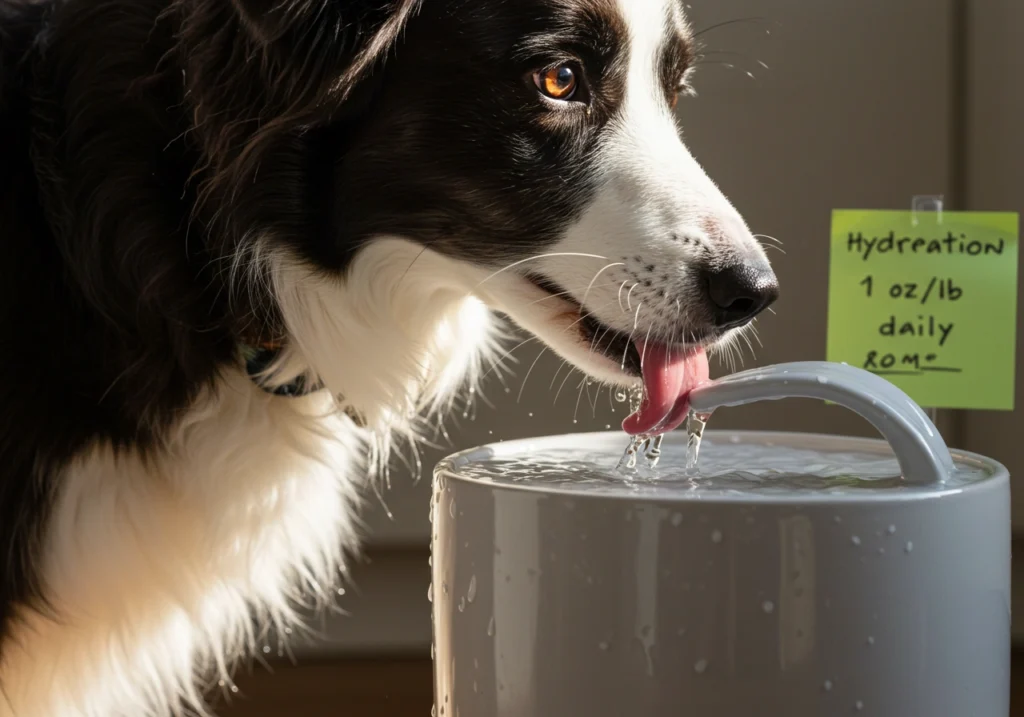
The National Research Council suggests that dogs need about 1 ounce of water per pound of body weight per day. For example, a 10-pound dog should drink at least 10 ounces of water daily.
Always ensure that your dog has access to clean, fresh water throughout the day, especially during hot weather or after playtime. Dogs lose water through panting, especially after exercise or when they’re stressed, so it’s important to encourage them to drink often.If you notice signs of dehydration, such as dry gums, lethargy, or a decrease in urination, it’s time to get your dog hydrated immediately. You can also offer ice cubes for extra hydration during warm days
4. Exercise Keeps Your Dog Happy and Healthy
Just like humans, dogs need regular exercise to stay fit and healthy. Exercise helps maintain a healthy weight, boosts the immune system, reduces stress, and keeps their muscles strong.
According to the American Kennel Club (AKC), dogs need at least 30 minutes of exercise each day. Larger or more active breeds may need more time, while smaller or older dogs might require less.
Exercise also plays a vital role in mental health. Regular walks, runs, and playtime can help alleviate behavioral problems like anxiety or excess energy. If your dog is energetic, you can try more interactive activities like fetch, tug-of-war, or agility training.Exercise isn’t just about physical health it’s also about mental stimulation. Dogs are intelligent creatures that need mental challenges to prevent boredom. Consider adding puzzle toys or teaching your dog new tricks as part of their exercise routine.

5. Mental Stimulation Is Just as Important as Physical Exercise
While physical exercise keeps your dog’s body fit, mental stimulation is equally important for their well-being. A dog’s mind needs challenges and activities that keep them sharp and engaged.Studies have shown that dogs who engage in mental stimulation have lower levels of anxiety, stress, and destructive behaviors. Puzzle toys, treat-dispensing toys, and training sessions are all excellent ways to stimulate your dog’s mind.
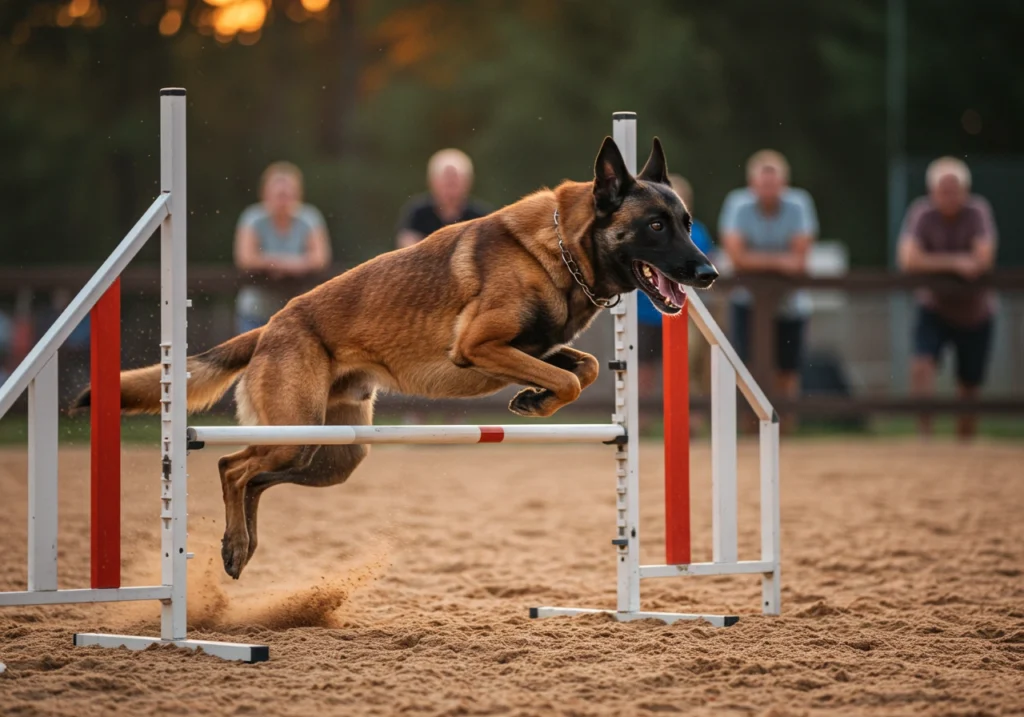
Interactive games that encourage your dog to think can reduce boredom and prevent undesirable behaviors, such as chewing furniture or digging holes in the yard. It also helps prevent cognitive decline in older dogs.Training your dog to follow commands or teaching them new tricks provides mental stimulation while also strengthening your bond. Dogs thrive when they have a job or purpose, so keeping their minds engaged can lead to a happier, more well-behaved pet.
6. Regular Grooming Boosts Health
Regular grooming isn’t just about keeping your dog looking good it’s also important for their health. Brushing your dog’s coat helps remove dirt, debris, and mats, while also reducing shedding. Additionally, grooming sessions allow you to check for potential health problems, such as parasites, infections, or skin issues.
According to the American Kennel Club, some breeds require daily brushing, while others only need it once a week. Long-haired breeds, like Collies or Shih Tzus, may need more frequent grooming.
During grooming, make sure to check your dog’s ears, teeth, and paws for any signs of infection or injury. If your dog has a thick coat or skin folds, regular grooming can help prevent mats and irritation.
Grooming also provides an opportunity to bond with your dog, creating a relaxing and positive experience for both of you. Many dogs love being brushed, and it can be a great time for cuddles and affection!
7. Dental Health Should Not Be Overlooked
Dental health is often overlooked, but it’s essential for your dog’s overall well-being. Just like humans, dogs can suffer from gum disease, tooth decay, and bad breath if their teeth aren’t cleaned regularly.
According to the American Veterinary Dental Society (AVDS), more than 80% of dogs show signs of dental disease by age 3.
To keep your dog’s teeth healthy, brush them regularly with a dog-safe toothbrush and toothpaste. Dental chews and toys can also help remove plaque and tartar buildup. If you notice your dog’s breath smells bad, or if they have red or swollen gums, it could be a sign of dental disease, and it’s time for a vet visit.Dental care is an often-overlooked aspect of dog health, but it’s crucial to preventing more serious health problems down the road.
8. Dogs Need Protection from Fleas and Ticks
Fleas and ticks aren’t just a nuisance; they can carry diseases like Lyme disease, tapeworms, and other parasitic infections. Fleas can also lead to intense itching and hair loss, while ticks can be dangerous, especially in certain areas.The Centers for Disease Control and Prevention (CDC) estimates that Lyme disease affects tens of thousands of dogs annually.
Preventing fleas and ticks is an important part of responsible dog ownership. Use flea and tick preventatives that are recommended by your vet. These might come in the form of topical treatments, oral medications, or collars. Make sure to check your dog for ticks regularly, especially if they’ve been outside in wooded or grassy areas.
Flea infestations can also be treated with monthly preventatives, which are key in keeping your dog comfortable and healthy.
9. Parasites Can Be Harmful
Dogs can pick up a variety of parasites that can lead to serious health problems. Internal parasites, such as heartworms, roundworms, and tapeworms, can cause digestive issues, lethargy, and even death if left untreated.The American Heartworm Society reports that heartworm disease is prevalent in both urban and rural areas, and it’s often fatal if not treated in time.
To protect your dog from parasites, regular deworming treatments and heartworm preventatives are a must. Your vet can recommend the right medication based on your dog’s lifestyle and health history. Early detection and treatment of parasites can save your dog from a lot of discomfort and health risks.

10. Healthy Weight Means a Longer Life
According to the American Kennel Club (AKC), dogs that maintain a healthy weight live, on average, 1.8 years longer than those who are overweight.
Maintaining a healthy weight is one of the most important things you can do to improve your dog’s overall health. Just like humans, dogs that are overweight are at a higher risk for heart disease, joint issues, and diabetes. Extra weight can also lead to shorter life expectancy. The best way to keep your dog at a healthy weight is by feeding them the right amount of food and giving them plenty of exercise. Avoid overfeeding and give them the right portion sizes based on their breed, age, and activity level.
It’s important to monitor your dog’s weight regularly. If they start gaining weight, you can reduce their food intake and increase their activity level. Speak with your vet to determine your dog’s ideal weight and how to achieve it.A healthy weight helps your dog feel better, move easier, and live a longer, happier life!
11. Keep Your Dog’s Mind and Body in Balance
Dogs that get the right amount of exercise and rest are more balanced emotionally and physically. Studies show that exercise reduces stress and anxiety in dogs.Just like humans, dogs need a balance between activity and rest. Too much exercise can tire them out, while too little can lead to weight gain and behavioral issues. Make sure your dog gets enough playtime and exercise, but also allow them to rest. Sleep is just as important as exercise it helps your dog recover and maintain their energy levels.
If your dog seems overly tired or stressed, try giving them a quiet space to rest, away from loud noises and distractions. A balance of physical activity, mental stimulation, and sleep will keep your dog healthy, happy, and well-adjusted.
12. Vaccinations Are a Must
The American Veterinary Medical Association (AVMA) reports that vaccines help prevent serious diseases like rabies, parvovirus, and distemper, which can be deadly to dogs.
Vaccinating your dog is one of the best ways to protect them from harmful diseases. Puppies need to be vaccinated starting at about 6 to 8 weeks old, and they’ll need booster shots throughout their life. Regular vaccinations protect not only your dog but also other pets in your community.
Core vaccinations that every dog should get include rabies, distemper, parvovirus, and adenovirus. Your vet will guide you on which vaccines are necessary based on your dog’s lifestyle, breed, and health status.Vaccinations help prevent the spread of dangerous diseases, so it’s crucial to stay on top of them throughout your dog’s life.
13. Dogs Can Suffer from Anxiety
The American Kennel Club (AKC) states that around 14% of dogs suffer from separation anxiety, which is one of the most common behavioral problems.
Dogs can experience anxiety for many reasons. Some common triggers include being left alone, loud noises (like thunderstorms), or changes in their environment. If your dog seems anxious or fearful, it’s important to provide comfort and help them cope.
Training your dog to be comfortable when left alone, providing calming products (like anxiety wraps or pheromone diffusers), and establishing a consistent routine can help ease their anxiety. For severe cases, a vet may recommend behavior therapy or medication.
By understanding your dog’s triggers and providing them with the right support, you can help them lead a more peaceful and less stressful life.
With these tips, you’ll have a better understanding of how to take care of your dog and keep them healthy for years to come. Whether they’re a puppy or a senior dog, every dog deserves love, attention, and the best care possible



